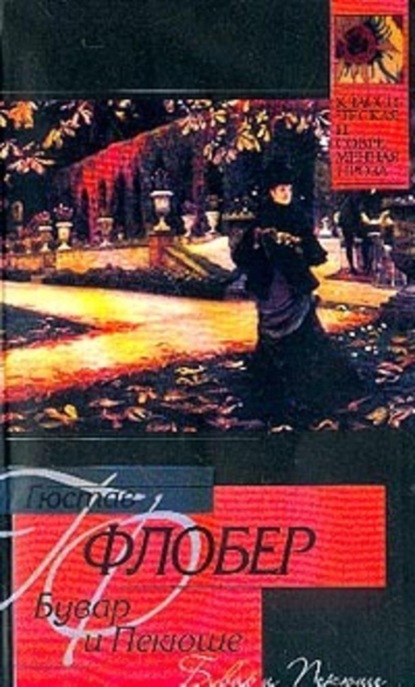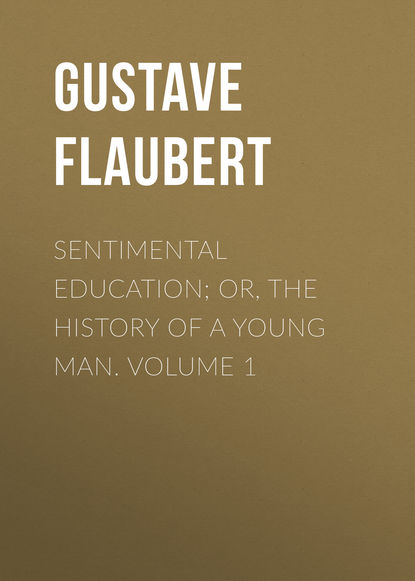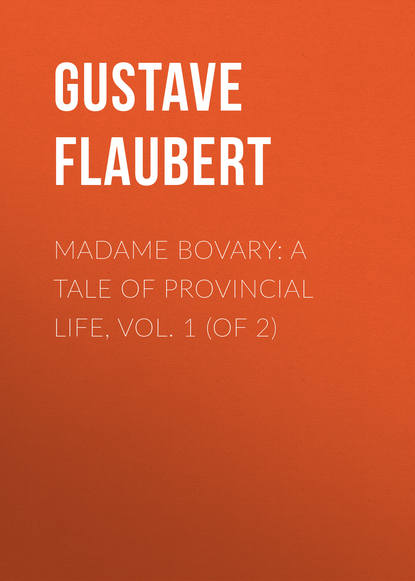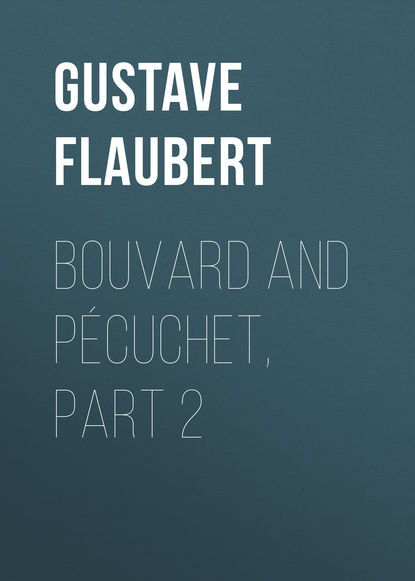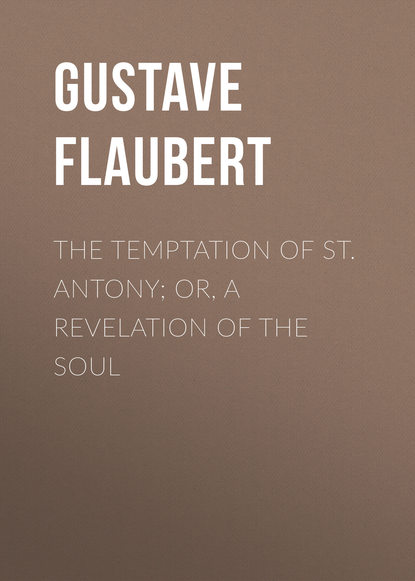 Полная версия
Полная версияПолная версия:
Гюстав Флобер The Temptation of St. Anthony
- + Увеличить шрифт
- - Уменьшить шрифт

Gustave Flaubert
The Temptation of St. Anthony
INTRODUCTION
It was at some period between 1875 and 1876 that Lafcadio Hearn – still a "cub" reporter on a daily paper in Cincinnati – began his translation of Flaubert's "Temptation of St. Anthony." The definitive edition of the work, over which the author had laboured for thirty years, had appeared in 1874.
Hearn was, in his early youth, singularly indifferent to the work of the Englishmen of the Victorian period. Though he knew the English masterpieces of that epoch, their large, unacademic freedom of manner awakened no echoes in his spirit. His instinctive taste was for the exquisite in style: for "that peculiar kneading, heightening, and recasting" which Matthew Arnold thought necessary for perfection. Neither did the matter, more than the manner of the Victorians appeal to him. The circumstances of his life had at so many points set him out of touch with his fellows that the affectionate mockery of Thackeray's pictures of English society were alien to his interest. The laughing heartiness of Dickens' studies of the man in the street hardly touched him. Browning's poignant analyses of souls were too rudely robust of manner to move him. Before essaying journalism Hearn had served for a while as an assistant in the Public Library, and there he had found and fallen under the spell, of the great Frenchman of the Romantic School of the '30's – that period of rich flowering of the Gallic genius. Gautier's tales of ancient weirdnesses fired his imagination. The penetrating subtleties of his verse woke in the boy the felicitous emotions which the virtuoso knows in handling cameos and enamellings by hands which have long been dust. So, also, Hugo's revivals of the passions and terrors of the mediæval world stirred the young librarian's eager interest. But most of all his spirit leapt to meet the tremendous drama of the "Temptation." He comprehended at once its large significance, its great import, and in his enthusiastic recognition of its value and meaning he set at once about giving it a language understood of the people of his own tongue.
Tunison tells of the little shy, shabby, half-blind boy – the long dull day of police reporting done – labouring at his desk into the small hours, with the flickering gas jet whistling overhead, and his myopic eyes bent close to the papers which he covered with beautiful, almost microscopic characters – escaping thus from the crass, raw world about him to delicately and painstakingly turn into English stories of Cleopatra's cruel, fantastic Egyptian Night's Entertainment. Withdrawing himself to transliterate tales of pallid beautiful vampires draining the veins of ardent boys: of lovely faded ghosts of great ladies descending from shadowy tapestries to coquette with romantic dreamers; or to find an English voice for the tragedy of the soul of the Alexandrian cenobite.
It was in such dreams and labours that he found refuge from the environment that was so antipathetic to his tastes, and in his immersion in the works of these virtuosos of words, in his passionate search for equivalents of the subtle nuances of their phrases, he developed his own style. A style full of intricate assonances, of a texture close woven and iridescent.
"One of Cleopatra's Night's" – a translation of some of Gautier's tales of glamour – was issued in 1882, but at "The Temptation of St. Anthony" the publishers altogether balked. The manuscript could not achieve even so much as a reading. America had in the '70's just begun to emerge from that state of provincial propriety in which we were accused of clothing even our piano legs in pantelettes. The very name of the work was sufficient to start modest shivers down the spine of all well regulated purveyors of books. It was largely due to the painters' conceptions of the nature of the hermit's trials that the story of Saint Anthony's spiritual struggle aroused instinctive terrors in all truly modest natures. The painters – who so dearly love to display their skill in drawing legs and busts – had been wont to push the poor old saint into the obscure of the background, and fill all the foreground with ladies of obviously the very lightest character, in garments still lighter, if possible. What had reputable American citizens to do with such as these jades? More especially such jades as seen through a French imagination! That Flaubert had brushed aside the gross and jejune conceptions of the painters the publishers would not even take the pains to learn.
It is amusing now to recall the nervous, timid proprieties of those days. At the time Hearn failed to see the laughable side of it. He was then too young and earnest, too passionate and too melancholy to have a sense of its humours.
He had brought his unfinished manuscript from Cincinnati to New Orleans, and had continued to work upon it in strange lodgings in gaunt, old half-ruined Creole houses; at the tables of odd little French cafés, or among the queer dishes in obscure Spanish and Chinese restaurants. He had snatched minutes for it amidst the reading and clipping of exchanges in a newspaper office; had toiled drippingly over it in the liquifying heats of tropic nights; had arisen from the "inexpungable langours" of yellow fever to complete its last astounding pages.
I can remember applauding, with ardent youthful sympathy, his tirades against the stultifying influence of blind puritanism upon American literature. I recall his scornful mocking at the inconsistency which complacently accepted the vulgar seduction, and the theatrical Brocken revels of Faust, while shrinking piously from Flaubert's grim story of the soul of man struggling to answer the riddle of the universe. He had however an almost equal contempt for the author's countrymen, who received with eager interest and pleasure the deliberate analysis – in Madame Bovary– of a woman's degradation and ruin, while they yawned over the amazing history of humanity's tremendous spiritual adventures. Hearn's own sensitiveness shrank in pain from the cold insight which uncovered layer by layer the brutal squalour of a woman's moral disintegration. But he was moved and astounded by the revelation, in St. Anthony, of the tragedy and pathos of man's long search for some body of belief or philosophy by which he could explain to himself the strange great phenomena of life and death, and the inscrutable cruelties of Nature. The young translator was filled with a sort of astonished despair at his inability to make others see the book as he did – not realizing, in his youthful impatience, that the average mind clings to the concrete, and is puzzled and terrified by outlines of thought too large for its range of vision; that the commonplace intelligence cannot "see the wood for the trees," and becomes confused and over-weighted when confronted with the huge outlines of so great a picture as that drawn by Flaubert in his masterpiece.
There were many points of resemblance between Lafcadio Hearn and the grandson of the French veterinary. A resemblance rather in certain qualities of the spirit than in social conditions and physical endowments. Flaubert, born in 1821, was the son of a surgeon. His father was long connected with the Hôtel Dieu of Rouen, in which the boy was born, and in which he lived until his eighteenth year, when he went to Paris to study law. One of the friends of his early Parisian days describes him as "a young Greek. Tall, supple, and as graceful as an athlete. He was charming, mais un peu farouche. Quite unconscious of his physical and mental gifts; very careless of the impression he produced, and entirely indifferent to formalities. His dress consisted of a red flannel shirt, trousers of heavy blue cloth, and a scarf of the same colour drawn tight about his slender waist. His hat was worn 'any how' and often he abandoned it altogether. When I spoke to him of fame or influence… he seemed superbly indifferent. He had no desire for glory or gain… What was lacking in his nature was an interest in les choses extérieures, choses utiles." …
One who saw him in 1879 found the young Greek athlete – now close upon sixty, and having in the interval created some of the great classics of French literature – "a huge man, a tremendous old man. His long, straggling gray hair was brushed back. His red face was that of a soldier, or a sheik – divided by drooping white moustaches. A trumpet was his voice, and he gesticulated freely … the colour of his eyes a bit of faded blue sky."
The study of the law did not hold Flaubert long. It was one of those choses extérieures, choses utiles to which he was so profoundly indifferent. Paris bored him. He longed for Rouen, and for his little student chamber. There he had lain upon his bed whole days at a time; apparently as lazy as a lizard; smoking, dreaming; pondering the large, inchoate, formless dreams of youth.
In 1845 his father died, and in the following year he lost his sister Caroline, whom he had passionately loved, and for whom he grieved all his life. He rejoined his mother, and they established themselves at Croisset, near Rouen, upon a small inherited property. It was an agreeable house, pleasantly situated in sight of the Seine. Flaubert nourished with pleasure a local legend that Pascal had once inhabited the old Croisset homestead, and that the Abbé Prevost had written Manon Lescaut within its walls. Near the house – now gone – he built for himself a pavilion to serve as a study, and in this he spent the greater portion of the following thirty-four years in passionate, unremitting labour.
He made a voyage to Corsica in his youth; one to Brittany, with Maxime du Camp, in 1846; and spent some months in Egypt, Palestine, Turkey, and Greece in 1849. This Oriental experience gave him the most intense pleasure, and was the germ of Salammbo, and of the Temptation of St. Anthony. He never repeated it, though he constantly talked of doing so. He nursed a persistent, but unrealized dream of going as far as Ceylon, whose ancient name, Taprobana, he was never weary of repeating; utterance of its melifluous syllables becoming a positive tic with him. Despite these yearnings he remained at home. Despite his full-blooded physique he would take no more exercise than his terrace afforded, or an occasional swim in the Seine. He smoked incessantly, and for months at a stretch worked fifteen hours out of the twenty-four at his desk. Three hundred volumes might be annotated for a page of facts. He would write twenty pages, and reduce these by exquisite concisions, by fastidious rejections to three; would search for hours for the one word that perfectly conveyed the colour of his thought, and would – as in the case of the Temptation– wait fifteen years for a sense of satisfaction with a manuscript before allowing it to see the light. To Maxime du Camp, who urged him to hasten the completion of his book in order to take advantage of a favourable opportunity, he wrote angrily:
"Tu me parais avoir à mon endroit un tic ou vice rédhibitoire. Il ne m'embête pas; n'aie aucune crainte; mon parti est pris là-dessus depuis long temps. Je te dirai seulement que tous ces mots; se dépêcher, c'est le moment, place prise, se poser, … sont pour moi un vocabulaire vide de sens…"
In one of his letters he says that on occasion he worked violently for eight hours to achieve one page. He endeavoured never to repeat a word in that page, and tried to force every phrase to respond to a rhythmic law. Guy do Maupassant, his nephew and pupil, says that to ensure this rhythm Flaubert "prenait sa feuille de papier, relevait à la hauteur du regard et, s'appuyant sur un coude, déclaimait, d'une voix mordant et haute. Il écoutait la rythme de sa prose, s'arrêtait comme pour saisir une sonorité fuyant, combinait les tons, éloignait les assonances, disposait les virgules avec conscience, commes les haltes d'un long chemin." …
Flaubert said himself, "une phrase est viable quand elle correspond à toutes les nécessités de respiration. Je sais qu'elle est bonne lorsqu'elle peut être lu tout haut."
Henry Irving used to say of himself that it was necessary he should work harder than other actors because nature had dowered him with flexibility of neither voice nor feature, and Faguet says that Flaubert was forced to this excessive toil and incessant watchfulness because he did not write well naturally. Nevertheless Flaubert's work did not smell of the lamp. Whatever shape his ideas may have worn at birth when full grown they moved with large classic grace and freedom, simple, sincere, and beautiful in form. François Coppée calls him "the Beethoven of French prose."
So conscientious a workman, so laborious and self-sacrificing an artist had a natural attraction for Lafcadio Hearn, who even in boyhood began to feel his vocation as "a literary monk." The whole tendency of his tastes prepared him to understand the true importance of Flaubert's masterpiece, fitted him especially of all living writers to turn that masterpiece into its true English equivalent. The two men had much in common. Both were proud and timid. Both had a fundamental indifference to choses extérieures, choses utiles. Both were realists of the soul. Actions interested each but slightly; the emotions from which actions sprung very much. To both stupidity was even more antipathetic than wickedness, because each realized that nearly all cruelty and vice have their germ in ignorance and stupidity rather than in innate rascality. Flaubert declared, with a sort of rage, that "la bêtise entre dans mes pores." He might too have been speaking for Hearn when he said that the grotesque, the strange, and the monstrous had for him an inexplicable charm. "It corresponds," he says, "to the intimate needs of my nature – it does not cause me to laugh, but to dream long dreams." Hearn, however, mixed with this triste interest a quality that Flaubert seemed almost wholly to lack – a great tenderness for all things humble, feeble, ugly and helpless. Both from childhood were curious of poignant sensations, of the sad, the mysterious and the exotic. And for both the tropics had an irresistible fascination. Flaubert says, in one of his letters:
"I carry with me the melancholy of the barbaric races, with their instincts of migration, and their innate distaste of life, which forced them to quit their homes in order to escape from themselves. They loved the sun, all those barbarians who came to die in Italy; they had a frenzied aspiration toward the light, toward the blue skies, toward an ardent existence… Think that perhaps I will never see China, will never be rocked to sleep by the cadenced footsteps of camels … will never see the shine of a tiger's eyes in the forest… You can treat all this as little worthy of pity, but I suffer so much when I think of it … as of something lamentable and irremediable."
This is the nostalgia for the strange, for the unaccustomed, that all born wanderers know. Fate arranges it for many of them that their lives shall be uneventful, passed in dull, provincial narrowness; but behind these bars the clipped wings of their spirit are always flutteringly spread for flight. They know not what they seek, what desire drives them, but a sense of "the great adventure" unachieved keeps them restless until they die. It is such as these, these voyageurs empassionés, when condemned by fortune to a static existence – who find their outlet in mental wanderings amid the unusual, the grotesque, and the monstrous. Hearn and Flaubert both were at heart nomads, seekers of the unaccustomed; stretching toward immensities of space and time, toward the ghostly, the hidden, the unrealized. Like that wild fantastic Chimera of the "Temptation" each such soul declares "je cherche des parfums nouveaux, des fleurs plus large, des plaisirs inéprouvés."
Flaubert was but twenty-six when the first suggestion of his masterpiece came to him. For La Tentation de St. Antoine, it is coming to be understood, is his masterpiece; is one of the greatest literary achievements of the French mind. Madame Bovary is more widely famous and popular, but Flaubert himself always deeply resented this preference, and was always astonished at the comparative indifference of the world to the "Temptation." He, too, found it difficult to realize how hardly the average mind is awakened to an interest in the incorporeal; how surely cosmic generalizations escape the grasp of the commonplace intelligence.
Wagner waited a lifetime before the world was dragged reluctantly and resentfully up to a point from which it could discern the superiority of the tremendous finale of the Götterdämmerung to the Christmas-card chorus of angels chanting "Âme chaste et pure" to the beatified Marguerite. The whole prodigious structure of Wagner's dramatic and musical thought might have remained a mere adumbration in the soul of one German had chance not set a mad genius upon the throne of Bavaria. The bourgeoisie would – lacking this royal bullying – have continued to prefer Goethe and Gounod. Flaubert's great work unfortunately failed of such patronage.
It was in 1845 that an old picture by Breughel, seen at Genoa, first inspired Flaubert to attempt the story of St. Anthony. He sought out an engraving of this conception of Peter the Younger (surnamed "Hell-Breughel" for his fondness for such subjects), hung it on his walls at Croisset, and after three years of brooding upon it began, May 24, 1848, La Tentation de St. Antoine. In twelve months he had finished the first draught of the work, which bulked to 540 pages. It was laid aside for "Bovary," and a second version of the "Temptation" was completed in 1856, but this time the manuscript had been reduced to 193 pages, and the "blazing phrases, the jewelled words, the turbulence, the comedy, the mysticism" of the first version had been superseded by a larger, more dramatic conception. In 1872 he made still a new draught, and by this time it had shrunk to 136 pages. He even then eliminated three chapters, and finally gave to the world in 1874 "this wonderful coloured panorama of philosophy, this Gulliver-like travelling amid the master ideas of the antique and early Christian worlds."
Faguet says, "In its primitive and legendary state the temptation of St. Anthony was nothing more than the story of a recluse tempted by the Devil through the flesh, by all the artifices at the Devil's disposal. In the definite thought of Flaubert the temptation of St. Anthony has become man's soul tempted by all the illusions of human thought and imagination. St. Anthony to the eyes of the first naive hagiologists is a second Adam, seduced by woman, who was inspired by Satan. St. Anthony conceived by Flaubert is a more thoughtful Faust; a Faust incapable of irony, not a Faust who could play with illusions and with himself – secretly persuaded that he could withdraw when he chose to give himself the trouble to do so – rather a Faust who approached, accosted, caressed all possible forms of universal illusions."
Flaubert's studies for the "Temptation" were tremendous. For nearly thirty years he touched and retouched, altered, enlarged, condensed. He kneaded into its substance the knowledge, incessantly sought, of all religions and philosophies; of all the forms man's speculations had taken in his endless endeavours to explain to himself Life and Fate; humanity's untiring, passionate effort to find the meaning of its mysterious origin and purpose, and final destiny. How terrible, how naive, how fantastic, bloody, grovelling, and outrageous were most of the solutions accepted, the gigantic panorama of the book startlingly sets forth. What gory agonies, what mystic exaltations, what dark cruelties, frenzied abandons, and inhuman self denials have marked those puzzled gropings for light and truth are revealed as by lightning flashes in the crowding scenes of the epic. For the Temptation of St. Anthony is an epic. Not a drama of man's actions, as all previous epics have been, but a drama of the soul. All its movement is in the adventure and conflict of the spirit. St. Anthony remains always in the one place, almost as moveless as a mirror. His vision – clarified of the sensual and the actual by his fastings and macerations – becomes like the surface of an unruffled lake. A lake reflecting the aberrant forms of thoughts that, like clouds, drift between man and the infinite depths of knowledge. Clouds of illusion forever changing, melting, fusing; assuming forms grotesque, monstrous, intolerable; until at last the writhing mists of speculation and ignorance are drunk up by the widening light of wisdom and the fogs and phantasms vanish, leaving his consciousness aware, in poignant ecstasy, of the cloudless deeps of truth. The temptation of the flesh is but a passing episode. An eidolon of Sheba's queen offers him luxury, wealth, voluptuous beauty, power, dainty delights of eye and palate in vain. Man has never found his most dangerous seductions in the appetites. More lamentable disintegration has grown from his attempts to pierce beyond the body's veil. The parched and tortured saint is whirled by vertiginous visions through cycles of man's straining efforts to know why, whence, whither. He assists at the rites of Mithira, the prostrations of serpent-and-devil-worshippers, worshippers of fire, of light, of the Greeks' deified forces of nature; of the northern enthronement of brute force and war. He is swept by the soothing breath of Quietism, plunges into every heresy and philosophy, sees the orgies, the flagellations, the self mutilations, the battles and furies of sects, each convinced that it has found the answer at last to the Great Question, and endeavouring to constrain the rest of humanity to accept the answer. He meets the Sphinx – embodied interrogation – and the Chimera – the simulacrum of the fantasies of the imagination – dashing madly about the stolid querist.
Lucifer – spirit of doubt of all dogmatic solutions – mounts with Anthony into illimitable space. They rise beyond these struggles and furies into the cold uttermost of the universe; among innumerable worlds; worlds yet vaguely forming in the womb of time, newly come to birth, lustily grown to maturity; worlds dying, decaying, crumbling again into atomic dust. Overcome by the intolerable Vast, Anthony sinks once more to his cell, and Lucifer, who has shown him the macrocosm, opens to him the equal immensity of the microcosm. Makes him see the swarming life that permeates the seas, the earth and atmosphere, the incredible numerousness of the invisible lives that people every drop of water, every grain of sand, every breath of air. The unity of life dawns upon him, and his heart, withered by dubiety, melts into joyousness and peace. As the day dawns in gold he beholds the face of Christ.
Flaubert's Lucifer has no relation to the jejune Devil of man's early conception of material evil, nor does he resemble Goethe's Mephistopheles; embodiment of the Eighteenth Century's spirit of sneering disbeliefs and negation. He is rather our own tempter – Science. He is the spirit of Knowledge: Nature itself calling us to look into the immensities and read just our dogmas by this new and terrible widening of our mental and moral horizons. This last experience of the Saint reproduces the spiritual experiences of the modern man; cast loose from his ancient moorings, and yet finding at last in his new knowledge a truer conception of the brotherhood of all life in all its forms, and seeing still, in the growing light, the benignant eyes of God.
It is not remarkable that Flaubert resented the banality, the dull grossness of the reception of his work, or that Hearn shared his amazement and bitterness. Even yet the world wakes but slowly to the true character of this masterpiece; this epic wrought with so great a care and patience, so instinct with genius, dealing perhaps more profoundly than any other mind has ever done with the Great Adventure of humanity's eternal search for Truth.
ELIZABETH BISLAND.ARGUMENT
FRAILTYSunset in the desert. Enfeebled by prolonged fasting, the hermit finds himself unable to concentrate his mind upon holy things. His thoughts wonder; memories of youth evoke regrets that his relaxed will can no longer find strength to suppress, – and, remembrance begetting remembrance, his fancy leads him upon dangerous ground. He dreams of his flight from home, – of Ammonaria, his sister's playmate, – of his misery in the waste, – his visit to Alexandria with the blind monk Didymus, – the unholy sights of the luxurious city.
